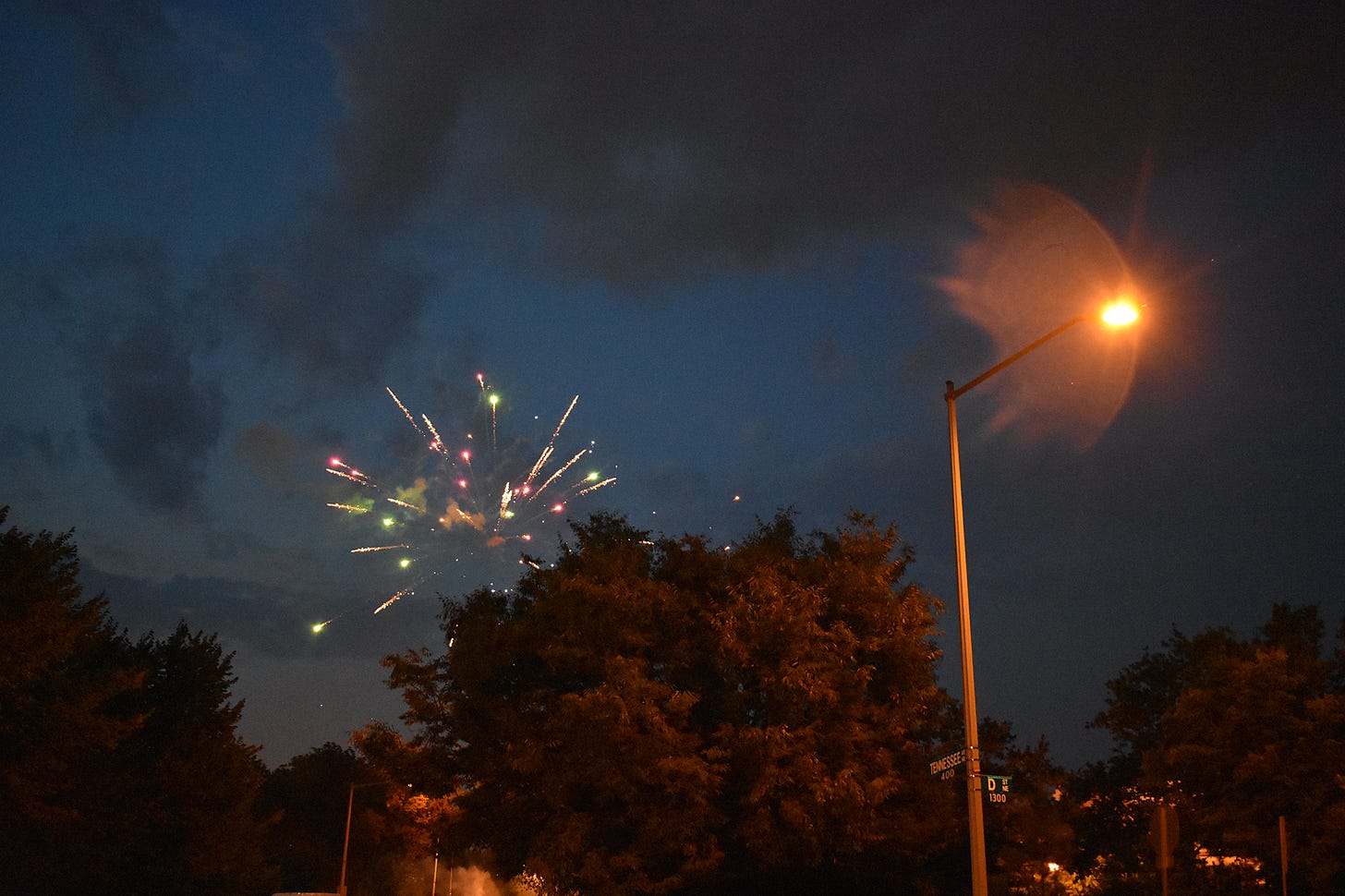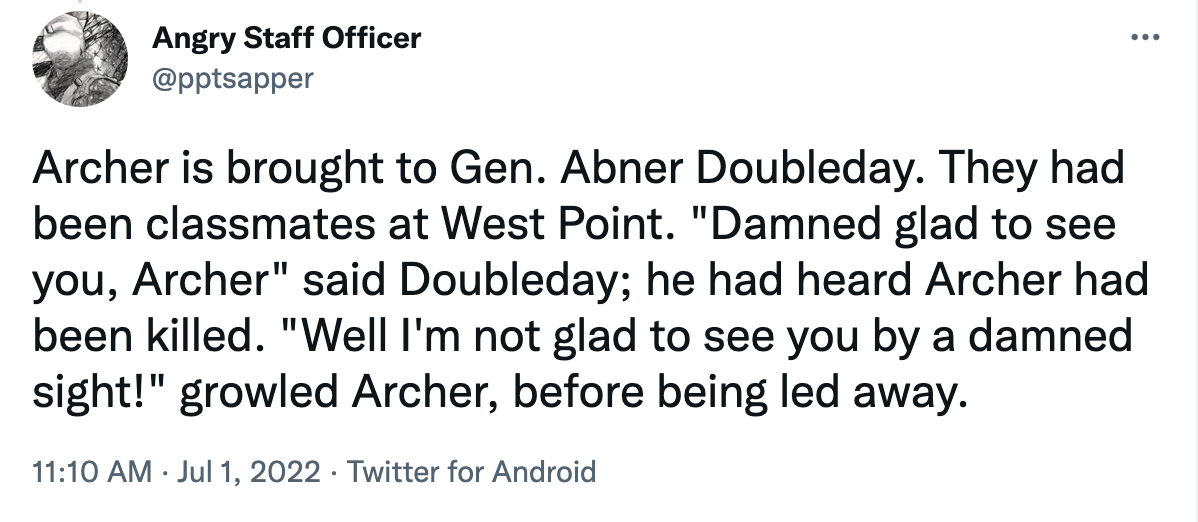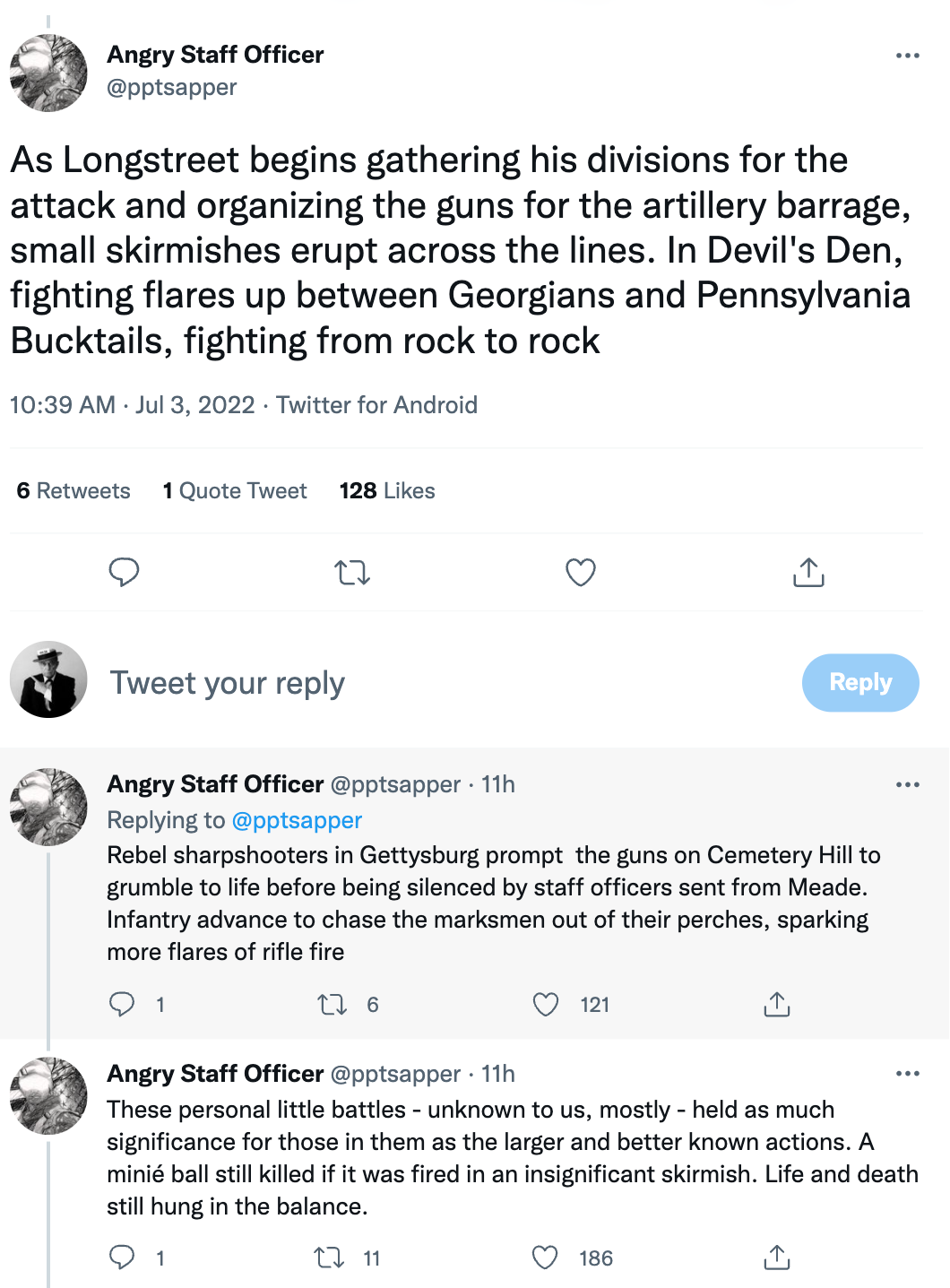I’m writing this as the fellas down here in Northeast D.C. are trying out their Fourth of July bang-bangs, which rattle and sputter and crash and zing and occasionally sound like a truck blew up. It’s one of the little things I enjoy about the place; back in New York the law made sure the outbursts were isolated and their non-professional pyrotechnicians had to get out of there fast, while here in D.C. neither the law nor the cops give a shit and on the day itself we can expect whole blocks to be carpeted in spent ordnance and smoke. I do feel bad for the cat, whose whereabouts I cannot at present ascertain, but I will tell you now why, though aesthetically I don’t care for fireworks much at all, I do like that we have them on the Fourth.
To me the Fourth of July is the real American holiday. There’s a lot to be said for Thanksgiving, but in my experience it’s especially favored by those who associate America with the cornucopia — lots of food, exploitable land and people, giant trucks so jacked up you can’t see a child in front of it from the driver’s seat, etc. It’s a celebration of American gigantism, which is part of America, true, but not all nor even the best part.
Memorial Day and Veterans Day have their good points, but they’re mainly about Him Who Shall Have Borne The Battle, a pro patria mori sentiment that is not so much American as nationalist.
A subversive choice would be MLK Day, but given the cottage industry built on purposefully misrepresenting the great man’s words and work, and especially since conservatives have gone into overdrive lying about the race relations King understood and explained, it mainly represents American hypocrisy — which is America, too, God knows, and maybe in the spirit of Twain and Sinclair Lewis we could therefore make a case for it. But that too is incomplete.
The great thing about the Fourth is that it has all that — the hypocrisy, for sure, courtesy of our rightwing brethren, both as a legacy and a perennial, as seen in the Washington Times’ “Independence Day on track to be a conservative holiday, experts say” — because liberals don’t wave Old Glory, see (“a unfavorable view of America’s ‘founding ideals of freedom and its history of emancipation’ is driving extra college students to flip away from patriotic shows like flags and fireworks”) but conservatives do, particularly the variant flag editions like the Let’s Go Brandon, the Blue Line, and the Straight-Up Nazi.
There’s also the gigantism — the overladen grills, the SUV-size coolers, flags the size of zeppelin tarps. But that too is only part of the Fourth.
The fireworks carry the military angle, too, but in a more fun-loving way than Veterans Day and Memorial Day. The Fourth fireworks are a revelry based on American firepower. They have been since the early days of the Republic, even before the War of Independence was won. Part of it was that Americans had fuck-all else to do on holidays, since we had yet to invent baseball or monster truck meets — I mean look at what people used to do for entertainment — but also because we knew what our celebrated freedom came from: A willingness to fight for it. Americans came to like the sound of the weapons that had won our wars. Shoot, in the national anthem “the rockets' red glare, the bombs bursting in air” are what “give proof through the night that our flag was still there.”
You could say this informs, or infects, everything about America’s self-image. It’s why our speechifying, our music, our movies, and our politics all tend toward bombast. It’s why, even though the neighbors may bitch about the amateur pyrotechnics in the neighborhood, many if not most of us can’t imagine the Fourth without it.
If, beyond the noise and smoke, you dislike that our national holiday is so tightly associated with war and violence, I can only suggest you look at it this way: America is, as they say, great because it’s good and vice versa. I know, I know: We don’t act like it much, and maybe when you tote up the good vs. the evil we’ve done in the world, even with the big score we racked up in WWII, we still may not come up to snuff. But at least some of us are willing and hopeful to see the power of this mighty state used, with gunpowder or otherwise, to redress rather than commit wrongs.
One of the great treats of the weekend has been the Twitter feed of Angry Staff Officer, wherein he has made a stream of many dozens of tweets chronicling the battle of Gettysburg, July 1-3, 1863. It is full of incident, some hair-raising, some humorous:
But ASO is not clowning around. He points out not only the massive casualties in each historically-significant engagement of the battle (totaling by the end over 7,000 dead, 3,000 wounded, and 10,000 missing on both sides), but also that many were killed in small skirmishes between-times:
Angry Staff Officer is clear, as I hope we all are, that the Union cause was just and that the battle’s result — which really was a near thing — was a turning point for that cause and the nation. And it was not achieved with ease, but with mortal combat.
ASO describes Pickett’s Charge — that famous last-gasp assault by the Confederates after two days of battle — not, as is traditional, from the Lost Cause perspective of the doomed Rebels (an example of which you can see here) but from the perspective of Lt. Frank Haskell, aide to the Union General Gibbons, who recorded this response:
None on that crest now need be told that the enemy is advancing. Every eye could see his legions, an overwhelming resistless tide of an ocean of armed men sweeping upon us… The grand old ensign that first waved at Saratoga, and which these people coming would wish to rob of half its stars, stood up and the west wind kissed it as the sergeant sloped its lance towards the enemy. I believe not one above whom it then waved but blessed his God that he was loyal to it, as the emblem of the Republic before that treason's flaunting rag in front.
I don’t know if you all would call it poetry (I would; “the grand old ensign… stood up and the west wind kissed it as the sergeant sloped its lance,” anyway), but I know Haskell was not sorry he had the guns to prevail that day, and I’m not sorry he did either.
We face some terrible times now, and we have to accept that it may come to extremes. Sometime I think of us now like the Americans who went out to watch the Battle of Bull Run with picnic baskets, not knowing how bad it would be and how bad it would get. They eventually were forced to come around; maybe we’ll be, too. We must be capable of surviving and triumphing in such a situation, and that begins with imagining that we can do it. So let the firecrackers, cherry bombs, and quarter-sticks roar on the Fourth. We are Americans, and we can stand the noise.






I was personally liking more and more the idea of Juneteenth, liberation at the end of war rather than the beginning, and the holiday of the Second Founding beginning with the 13th Amendment, when we tried turning the Republic into a democracy, but we haven't got a working set of rituals or a place for white people to show up saying, humbly, I'd like to celebrate too, and little belief at the moment that anything really changed anyway. So the Fourth is still something.
I don't Twitter, so thanks for the link to ASO. My much older brother retired as a Lt. Col. in the Army Reserves and is a well-read amateur military historian; and when my boys were growing up he took them and me to Harper's Ferry and several Civil War battlefields, describing and explaining all the way. As we approached Gettysburg, he turned to face the boys and said, "Now imagine you're a teenager who's never been away from home before, marching down a dusty road in the hot July sun in a wool uniform carrying an 8 lb. rifle, anxious and scared about "seeing the elephant" for the first time...." ASO is almost as good. ; )
I have a great grand-uncle buried on Cemetery Ridge, and my cousin has our great-grandfather's Civil War diary. Unfortunately, not all soldiers in the Civil War were as eloquent as the ones you quote. I was very excited to see that diary (about the size of a deck of cards, only a third as thick), but the laconic, mundane entries were usually one sentence: "Stood picket today," "Got paid today," etc. The most exciting one read, "President Lincoln reviewed the troops today —" and that was it. Nothing about what he saw or thought or felt. I should get better ancestors.
Having been to those battlefields has made it harder for me to countenance the sight of the Army of Northern Virginia battle flag, because I've stood near Bloody Lane at Antietam, and imagined it filled with mangled, dead and dying men covered in gore. Especially when that flag is adopted by Northerners — our ancestors, those men who fought there, how can we disrespect their memories like this?
Faulkner was right.